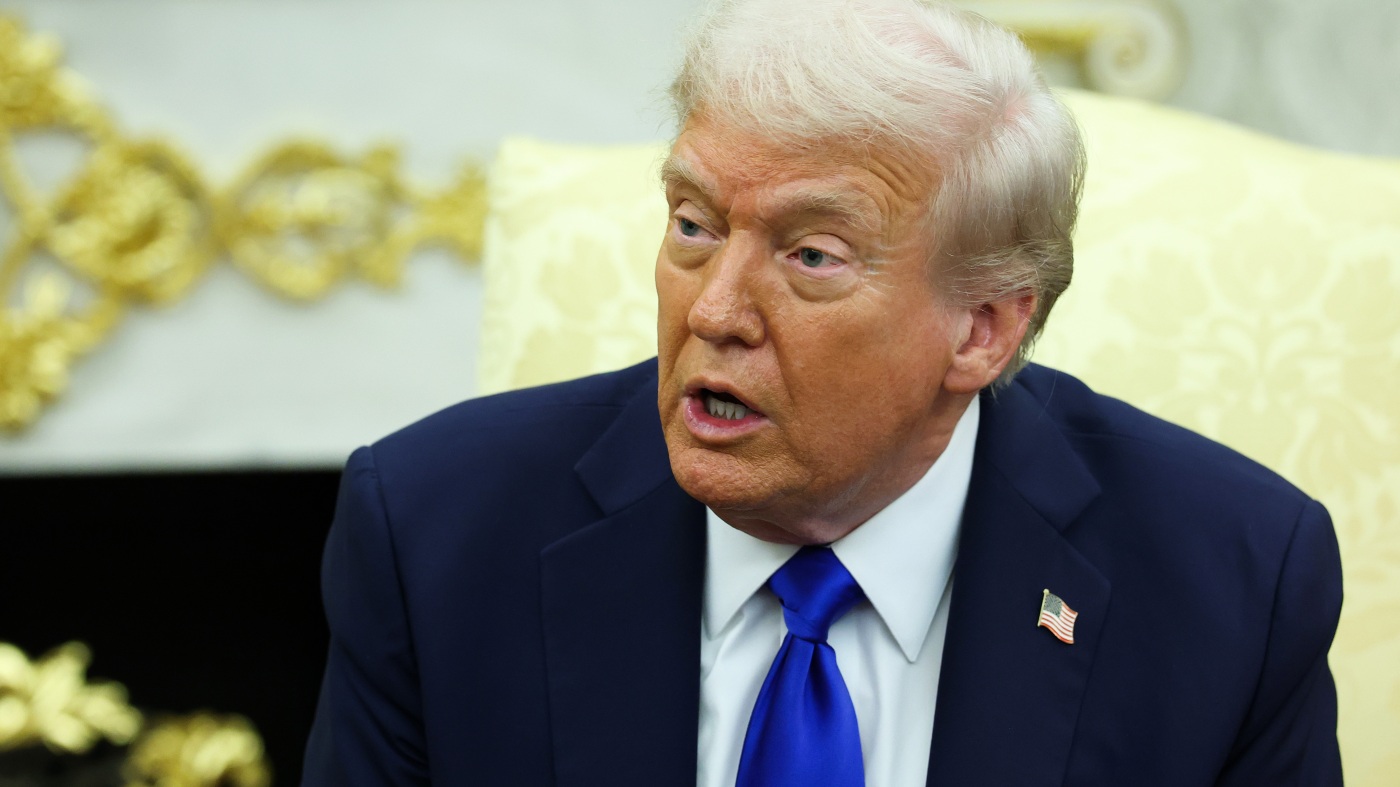
President Trump has once again thrust federal workers into a precarious situation, suggesting that some of the approximately 600,000 furloughed employees might not receive back pay once the government reopens. This alarming proposal contradicts the very spirit of the Government Employee Fair Treatment Act of 2019, a bipartisan law designed to protect federal employees from the financial fallout of government shutdowns.
In a recent press conference from the Oval Office, Trump appeared to endorse a draft memo from the Office of Management and Budget that advocates for withholding pay from certain workers, stating, “It depends on who we’re talking about.” This vague and troubling assertion raises serious questions about the administration’s commitment to the rights of federal employees. When pressed about the legality of such a decision, Trump asserted, “What the law says is correct, and I follow the law,” a statement that seems to be more about political posturing than a genuine commitment to upholding the law.
The memo in question is a part of a broader strategy by the Trump administration to pressure Democrats into conceding on a budget deal, which currently includes contentious health care subsidies for millions of Americans. By threatening the livelihoods of federal workers, Trump is further politicizing an issue that should be about the fundamental rights and protections of working-class Americans.
The legal justification presented in the draft memo undermines the explicit language of the 2019 law, which guarantees that federal workers “shall be paid” when a shutdown ends, regardless of their work status during the shutdown. This law was enacted after the record-breaking 35-day shutdown in 2018-2019, which caused significant hardship for federal employees and their families. The Government Employee Fair Treatment Act was a hard-fought victory for workers’ rights, ensuring that they would not suffer financially due to political gridlock.
Moreover, the memo contends that congressional action is necessary to enact back pay, citing a clause that states workers should be compensated “at the earliest date possible after the lapse in appropriations ends.” This interpretation is not only misleading but also disregards the intent of the law, which was meant to provide immediate relief to workers affected by shutdowns. The Office of Personnel Management’s guidance, issued just days ago, reaffirmed the automatic restoration of pay, yet this latest draft memo conveniently omits critical protections for workers.
This move is not merely bureaucratic maneuvering; it reflects a deeper and more concerning trend in the Trump administration’s approach to governance. The strategy is clear: hold federal workers hostage to force political outcomes that favor the administration’s agenda. This has been illustrated in previous tactics, such as threatening to cut transportation funding in states that did not support Trump in the 2024 election, or even proposing mass layoffs of federal employees. Each of these actions reveals an administration willing to wield the livelihoods of everyday workers as a bargaining chip, all while undermining the rule of law.
House Speaker Mike Johnson, R-La., suggested that there may be a legal basis for the draft memo, though he admitted a lack of familiarity with it. In contrast, Senator Patty Murray, D-Wash., the top Democrat on the Senate Appropriations Committee, condemned the memo as “lawless.” She stated unequivocally that the idea of withholding back pay from furloughed workers is an affront to the clear language of the law—a sentiment that resonates deeply among those advocating for workers’ rights and protections.
Murray’s remarks highlight a crucial reality: the fight for federal workers’ pay is not just about wages; it reflects a larger struggle for dignity, respect, and fairness in the workplace. Federal employees are not mere pawns in a political game; they are dedicated individuals who serve their communities and uphold essential services. Their contributions deserve recognition and protection, especially in times of political strife.
As we stand at this critical juncture, it is imperative that we hold the Trump administration accountable for its actions. The fate of hundreds of thousands of federal workers hangs in the balance, and their rights should not be subject to the whims of political maneuvering. We must demand transparency, legal adherence, and above all, a commitment to the well-being of all workers.
The implications of this situation extend well beyond the immediate concerns of paychecks. They underscore the necessity to protect the rights of workers, advocate for equitable treatment, and ensure that no individual is left behind due to political gamesmanship. The struggle for workers’ rights is a struggle for social justice, equality, and accountability—a fight we cannot afford to lose.


